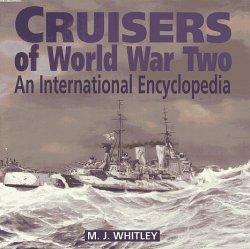The Balkan peninsula became a contested area among the emerging Cold War superpowers even before the Second World War officially ended. The Red Army's advance into Bulgaria and Romania brought these countries into the Soviet sphere of influence. In Yugoslavia and Albania, indigenous Communist regimes, which enjoyed popular support, indirectly yet effectively served Moscow's interests.
Stalin's understanding of his deal with the West placed Greece within the Western sphere of influence. Nonetheless, in 1946, in an attempt to change the status quo, the Greek Communists instigated a civil war against the Western-backed government in Athens - the first armed conflict of the still-undeclared Cold War. However, deprived of Moscow's decisive support, their futile effort ended in total defeat in the autumn of 1949. The Truman Doctrine, prompted by the Greek Civil War and Soviet pressure on Turkey, catalysed the American and Western strategy of containment and defined the basic precepts of the Cold War that would be in place until its very end.310
Faced with an effort by the British and Americans to consolidate their own spehere of interest in Western Europe, Stalin embarked upon creating a monolithic Soviet bloc of Balkan and East European countries through their Sovietisation. As part ofthis process, the attempt to remove Tito backfired and prompted a monumental Soviet-Yugoslav rupture in 1948, thereby creating the first schism within the international Communist movement.
Within a year after Stalin's death, Khrushchev and the new Soviet leadership tried to normalise relations with Yugoslavia. These efforts added momentum to the process of de-Stalinisation in the USSR and allowed Yugoslavia to play an important role in the process of liberalisation that swept Poland and
Hungary in 1956. In November of that year, following the Soviet military intervention in Hungary, relations between Yugoslavia and the USSR and its Balkan satellites deteriorated once again. However, by the end of the 1950s, Yugoslavia was firmly pursuing a new role as a leader of the non-aligned countries.
During the 1960s, Albania closely allied itself with Mao Zedong’s China. The country would remain isolated as the lone unreformed Stalinist regime until Hoxha’s death in 1985. Hailed as the only country within the Soviet bloc with an independent foreign policy, Romania would suffer under Nicolae Ceau§escu’s dictatorship until his bloody overthrow in December 1989. Bulgaria followed a less eventful existence as a faithful Soviet satellite until 1989.
Although the Balkan peninsula was an amalgamation of small nations with diverse cultures and religions, with only a modest proportion of the world’s population, its geostrategic position and its complex politics led it to play a large part in the formative years ofthe Cold War. As often before in its history, such as in 1914 and 1939, the region found itself in the mainstream of global historical developments from 1945 to 1955. The role the Balkan states played in the early Cold War helps us fully appreciate the ways in which the dynamics of the superpower competition were distorted and were critically influenced by regional political forces and distinct historical legacies.




 World History
World History









